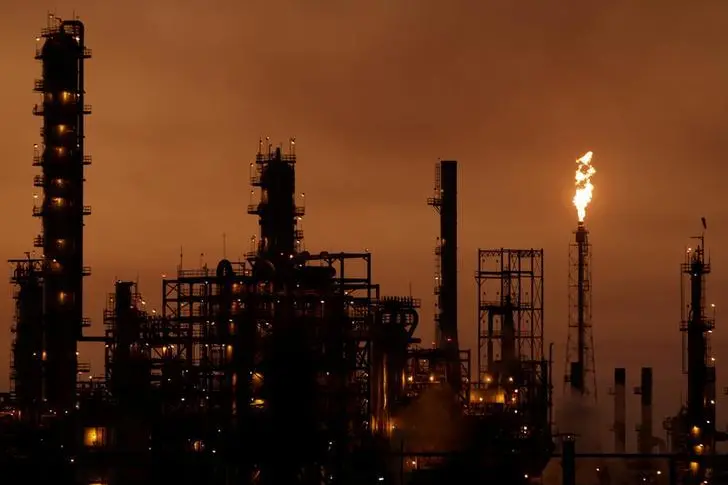PHOTO
Oil prices made the second consecutive week of gains and rose to a two-year high on stronger demand prospects, as OPEC+ succeeded in draining global oil inventories and the successful rollout of vaccine programs continued.
On the week closing, Brent crude price rose to $71.89 per barrel. West Texas Intermediate (WTI) rose to $69.62 per barrel.
After two years of resistance, the Brent crude price finally rose above the $70 mark amid tighter oil market prospects. However, it is not yet clear if there is room to jump much higher to make the $70 mark a base level. More importantly, is a Brent price level above $70 per barrel mark considered a sustainable price for a barrel of oil?
The oil market is very unpredictable and all price movement scenarios are possible, especially when it seems that speculators are finally back to leverage this price rally and bet on oil after being mellow for a while.
Plans to gradually increase production in July were already factored into oil prices ahead of the OPEC+ meeting, driven by expectations that recovering summer travel demand and the reopening economies will easily accommodate the gradual increase.
OPEC+ output cuts also helped to offset significant second-half stock draws, which is a strong bullish factor supporting an extremely tight market ahead, amid post-pandemic optimism about rising oil demand in the US, China and Europe.
The latest figures from the Commodity Futures Trading Commission (CFTC) on June 1 showed that long positions on crude oil futures on the New York Mercantile Exchange (NYMEX) numbered 646,517 contracts, up by 9,520 contracts from the previous week (1,000 barrels for each contract).
Is it time to bet on crude futures?
Apparently it is demand, not OPEC+, that is driving oil prices above $70 per barrel. Oil traders are much happier than OPEC+ producers to see these higher prices.
It is widely believed that crude oil prices will continue to rise. High gasoline demand during the summer season is perhaps a major factor, especially as many of the constraints currently in place could be eased significantly amid the exit from COVID-19 restrictions.
However, the ability of unconventional oil producers to respond to the increased crude oil demand will be constrained by the scarcity of drilling rigs, crews and high cost capital.
• Faisal Faeq is an energy and oil marketing adviser. He was formerly with OPEC and Saudi Aramco.
Twitter: @faisalfaeq
Copyright: Arab News © 2021 All rights reserved. Provided by SyndiGate Media Inc. (Syndigate.info).





















